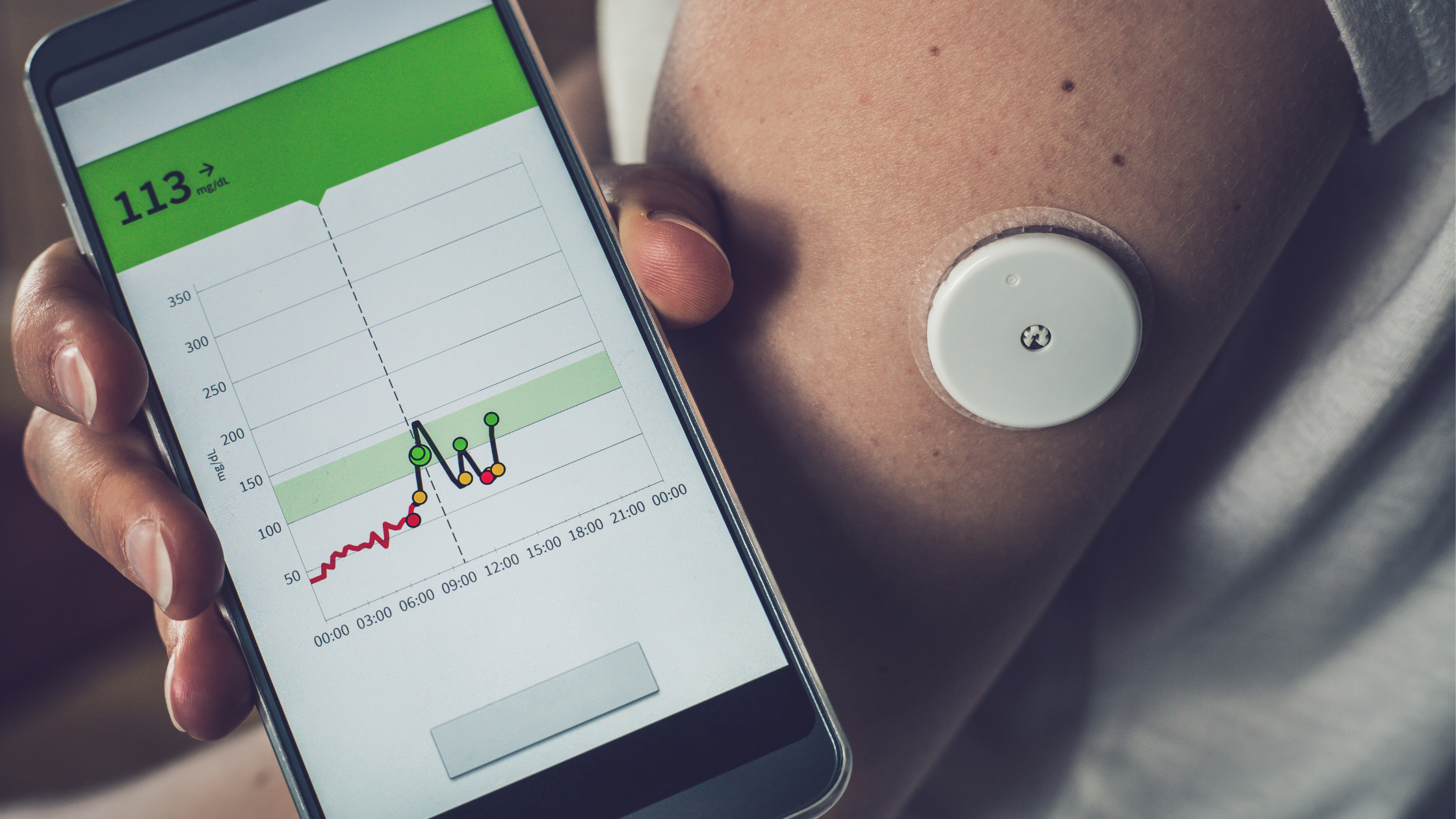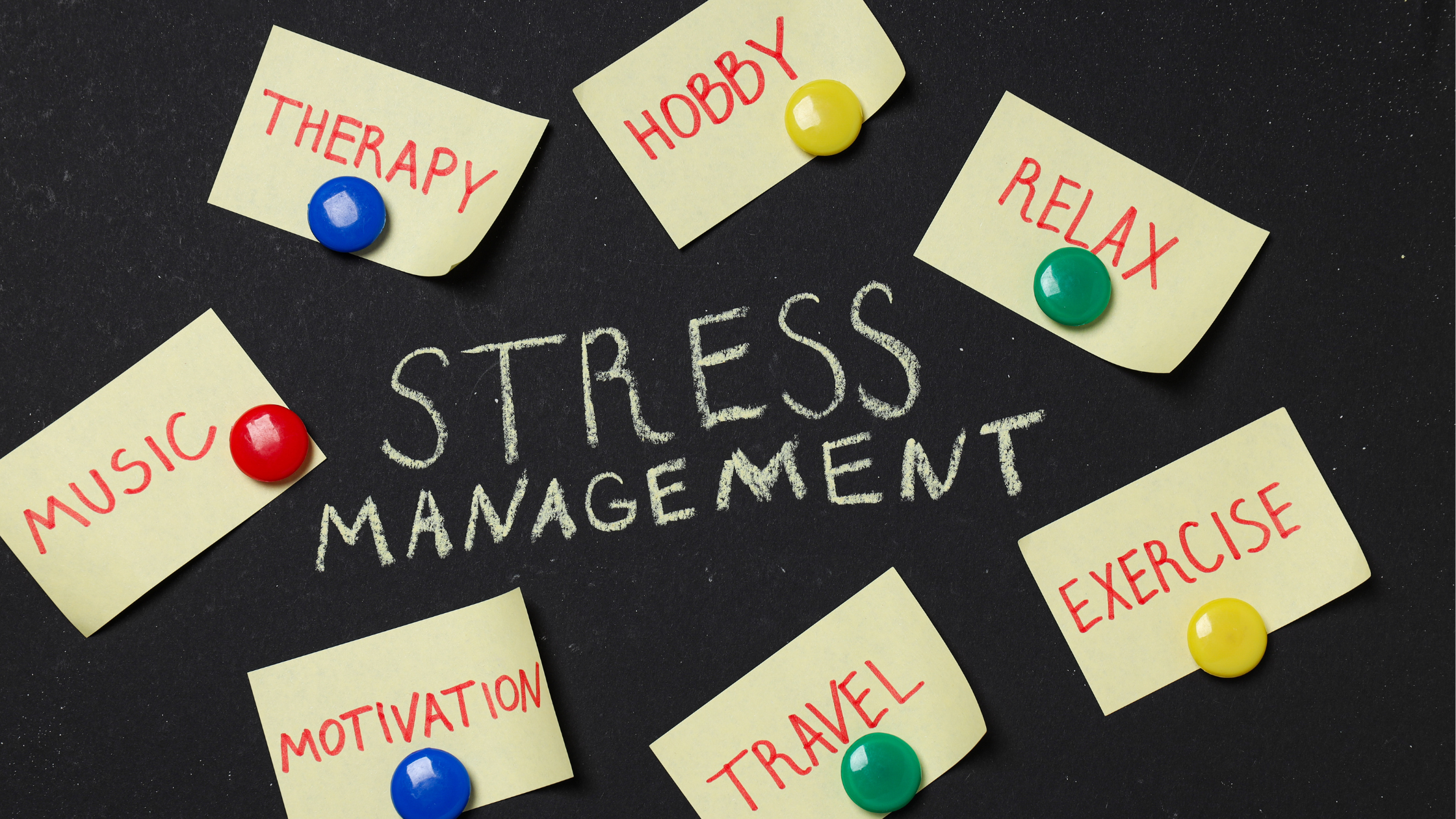How Stress Affects Diabetes and What You Can Do About It
Written by TYE Medical on Sep 12th 2024
Your body reacts to stress. It’s not just a state of mind. This reaction is sometimes referred to as the fight-or-flight response. Modern science has added another stress reaction, dubbing it the “fight, flight, or freeze” response. Whether you fight, flee, or freeze in response to internal or external stressors, hormones like adrenaline and cortisol surge through your bloodstream, triggering additional physical responses throughout your body, including heavier breathing.
But your body’s stress reaction also makes processing glucose more difficult, which means more glucose is diverted to your bloodstream, elevating blood glucose levels. Find out how different types of stress contribute to diabetes and how you can manage both.
Mental and Physical Stress Affect Glucose Levels

While specific symptoms of stress vary between individuals, physical and biological symptoms are certain. If you have type 2 diabetes, mental stress will increase blood glucose levels. If you have type 1 diabetes, blood glucose may either increase or decrease. It’s important to pay attention to your body’s specific response to stress.
Physical stress, such as illness or injury, can also increase blood glucose levels whether you have type 1 or 2 diabetes.
Stress is a critical consideration if you’re closely monitoring your glucose levels, because it’s not just about what you eat. Don’t forget the stress-induced hormone component that prevents proper glucose processing and elevates blood sugar.
Is Mental Stress Spiking Your Blood Sugar?

Consider patterns. Do you eat the same thing at the same time of day but have different glucose responses? Does it spike your glucose one day but not another? While other aspects of your diet could account for this, it’s also possible that stress is playing a role. If you eat something at a time you aren’t mentally stressed and then consume it at a time you are, you may notice your body doesn’t process it as well, which is evidenced by your high glucose readings.
The best way to determine how much stress is affecting your diabetes symptoms is to keep a log that not only includes the what and when of your diet, but also your circumstances and stress levels when you consumed it.
And take note that retirees experience stress. Not all stress is work related. Family and financial stress are common, as is marital stress and pressures related to chronic illness. For those who have lost a spouse, loneliness can also be a stressor. Additionally, aging in this fast-paced, largely unforgiving society also adds pressure to retirees. If you’re struggling to manage diabetes in your golden years, it’s worth considering how stress is affecting you physically.
What Are Stress Symptoms?

Symptoms of stress can be subtle, and if you’re accustomed to them, they can be difficult to notice. But it’s important to recognize stress so that you can take steps toward managing it. Here are some common stress symptoms and associated behaviors.
Physical symptoms of stress:
- Muscle pain or tension
- Headaches
- Fatigue
- Too much or too little sleep
- Feeling sick (generally)
Mental symptoms of stress:
- Irritability
- Lack of motivation
- Depression
- Restlessness
- Anxiety
These stress symptoms can cause you to act in ways that are out of character for you. Common uncharacteristic behaviors include:
- Eating too much or too little
- Acting out in anger
- Withdrawing from friends and family
- Using tobacco
- Drinking alcohol, or drinking to excess
If you detect several of these symptoms, then consider ways you can feasibly reduce stressors to manage symptoms. What are priorities in your life, and what could you approach differently?
How Chronic Stress Affects Your Body

Chronic stress wreaks havoc on glucose levels. Stress is considered chronic when you live with it at high levels for extended periods of time. This long-term stress negatively impacts your body and general health. Not only does it keep blood-glucose levels elevated, but it also causes the following conditions:
- Cardiovascular disease
- Anxiety
- Depression
- High blood pressure
- A weakened immune system
Stress underlies many health conditions, or at the very least, contributes to them. Understanding your stressors and ways to alleviate the pressure can notably benefit your overall health.
Stress Eating and Diabetes

Stress directly impacts your glucose levels through the release of stress hormones. It also indirectly affects blood sugar by triggering thoughtless and uncontrolled eating. Known as “stress eating,” it’s something you do to comfort yourself during periods of acute stress. You eat even though you’re not hungry and often give it little thought. It’s like a compulsion, and you may even find yourself awake and eating in the middle of the night.
If you’re eating at times and in quantities that are not usual for you, you might be stress eating. Typically, stress eating doesn’t trigger the healthiest food choices. In fact, you’re more likely to reach for “comfort foods” that taste good and make you feel good, even if they’re not good for you. This usually means foods high in sugar, simple carbs, and fats. All of which will spike your blood sugar and contribute to diabetes symptoms.
You’ll find that this doesn’t relieve your stress, and in the long-term, it only adds to it as your diabetes becomes unmanageable and your A1C levels continue to rise. It’s important that you find other ways to cope with stress.
Tips to Stop Stress Eating

To bring an end to stress eating, you first identify a pattern and then the trigger. Consider the circumstances leading up to your need for food. Make some notes in a food journal to capture what is going on or how you’re feeling before each binge-eating session. Oftentimes, food becomes a way to bring comfort during times of stress.
If you conclude that stress is the culprit, then it’s important to adopt healthy stress management techniques. These healthier means of coping can alleviate the need to comfort yourself through food, and can help you reduce blood sugar levels both directly (lowering stress hormones) and indirectly (curbing stress eating).
Another helpful tip is to plan your meals and your snacks. If you tend to stress eat at a certain time, then along with incorporating healthy coping habits, you can also plan a healthy, pre-portioned snack around that time. It can help to satisfy any rising hunger and bring some satisfaction without a loss of control.
Meal planning and prep is key for diabetics. It helps you stay on track with the timing of your meals and ensures you have the time to prepare healthy, low-carb meals for yourself. And in the midst of a busy week, you’re much less likely to reach for unhealthy food when you have a diabetic-friendly meal already prepped.
How to Reduce Stress and Improve Glucose Management

If you can address stressful circumstances, even if it means seeking outside help for relational or financial advice, it’s worth taking those steps. It’s for your health and well-being. But in many cases, circumstances can’t be changed or altered. Sometimes, life just is.
But don’t despair. Even if you can’t rid yourself of the stressors, you can help yourself manage them. Common and effective stress management tools include:
- Regular exercise
- Spending time with loved ones
- Engaging in relaxing activities (yoga or tai chi)
- Reducing caffeine and alcohol consumption
- Practicing meditation or prayer
- Avoiding known stressors when possible
- Getting 7-8 hours of sleep nightly
- Stay socially connected
- Make time for relaxation
Ways to Cope with Diabetes-Related Stress

Sometimes, the condition itself triggers stress. Having and managing diabetes can add a constant pressure to your life. You may find strength and comfort in connecting with others who are dealing with the same issues.
Online Support Groups
If you’re short on time but would like some encouragement and practical advice for diabetes management, consider an online support group. For example, Diabetic Connect can help you improve your quality, while offering recipes, articles, and informational videos to support your goals.
In-Person Support Groups
The Defeat Diabetes Foundation and the American Diabetes Association sponsor support groups with local chapters across the U.S. Through these organizations you can connect with peers for support and gain access to educational materials. You may find that making these kinds of connections also relieves some of the stress associated with managing diabetes.
Therapy
Sometimes, it’s more comfortable or even more helpful to talk with a professional about the pressures and stressors in your life. A therapist can provide both an outlet and coping mechanisms for the particular types of stress you’re facing. You may even gain some medical advice and health-related information beyond what a support group can offer.
You Can Manage Both Stress and Diabetes

With some awareness and engaging with resources, you can learn to manage life’s stress and your diabetes. Diabetes is certainly a challenge, but you can effectively manage it and live a happy and healthy life. Incorporate stress-reducing techniques like workouts and mediation. Avoid unnecessary stressors and find someone to talk to, whether a peer networking group, a therapist, or a good friend.
Physical and mental stress can trigger stress hormones that increase glucose levels. These unexpected peaks in blood sugar can cause unwanted diabetes symptoms and drive up your A1C levels over time. But employing stress-reducing techniques can help level and manage your diabetes.

